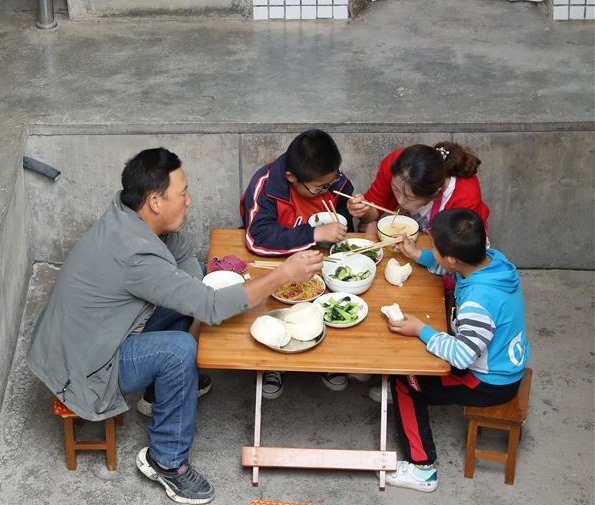Poverty alleviation gives rural families more time together
 0 Comment(s)
0 Comment(s) Print
Print E-mail Xinhua, June 4, 2020
E-mail Xinhua, June 4, 2020

On a chilly winter's night in 2008, Niu Lijuan left her home. After kissing her four-month-old baby, the 24-year-old mother with tears running down her cheeks, set out on a journey to a city about 2,400 kilometers away to look for a decent job.
"I of course preferred to stay at home with my child, but there were few factories and moneymaking opportunities in my hometown," recalls Niu, a rural resident in Gangu county, Northwest China's Gansu province. "To live a better life, I had to leave home."
Following in her footsteps one year later, Niu's husband also headed for Shenzhen, a coastal economic powerhouse in southern China. The couple were among the millions of parents who live in a poverty-stricken part of China and choose to leave their children behind and to find better paying jobs in larger cities.
In recent years, as part of China's efforts to eliminate poverty, a large number of programs have been launched in impoverished regions across the country. Many poverty alleviation programs have become new power engines for local economic growth, created jobs for the local labor force and brought parental love to the children whose parents return to take up jobs in their hometown.
In 2018, Niu became a benefactor of those poverty relief programs as she sought a job at a garment factory within a 10-minute drive from home. She can now work in her hometown while looking after her children.
"Cooking, tutoring and accompanying my son as he grows up, I will not miss any family time," says Niu.
Niu left her hometown in 2008, bound for a Shenzhen garment factory.
"I put my son's photo under my pillow. I took it out when I felt homesick," Niu recalls. "I often spoke to the photo saying I would go back home once I had made enough money."
As the days became years, the nostalgia only became more intense. During Spring Festival of 2011, Niu returned home for the holiday and noticed her son's reticence.
"He talked little and even avoided me when I approached him. At that moment, I realized that things had to change and I needed to return home to raise my child myself," Niu says.






Go to Forum >>0 Comment(s)